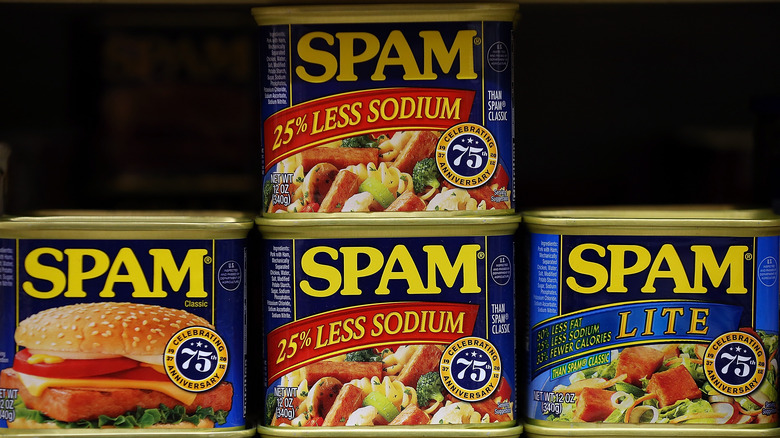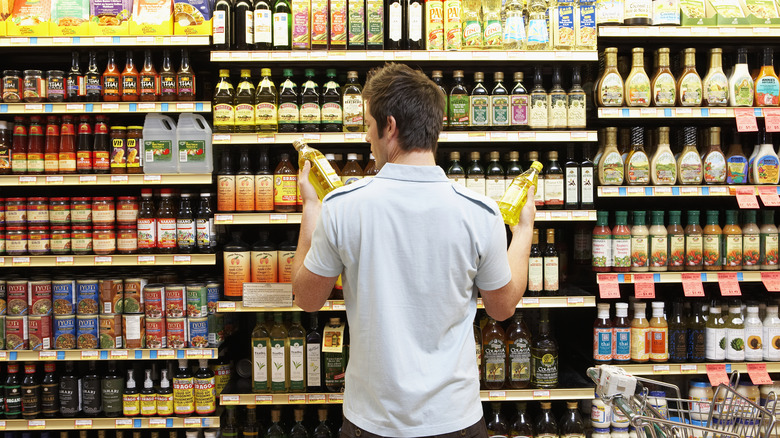Why Spam Could Be Getting More Expensive Soon
When Spam launched in 1937, it was considered a low-cost meat product. Whether fueled by wartime demand or convenience, that blue container has earned a spot in pop culture lore. A key brand under the Hormel Foods umbrella, the flavors and recipe options keep cooks coming back for more. During a recent Hormel Foods Corp earnings call, the brand revealed that the canned meat may cost more during the next shopping trip.
Hormel Foods' second-quarter earnings call projects that the company is on track to drive growth in the second half of the year. Although there have been recent sales drops, the company is optimistic about its future. As FoodDive reports, "targeted pricing actions" will reflect the inflationary concerns within the economy. While that statement might hurt the consumer's bottom line, it's designed to improve business margins.
Given that costs within the meat sector continue to rise, Hormel Foods is considering raising its prices to offset the difference, citing beef costs, higher grain prices, and even storage constraints. Even though some food sectors have decreasing prices, market stability isn't instantaneous. Once all sectors find that equilibrium, the fluctuations will lessen. Until then, Spam might not be the low-cost meat product from decades ago.
Can retailers influence companies' decisions on increasing food costs?
When Hormel Foods announced its targeted pricing actions for some products, including Spam, it wasn't just Wall Street and local consumers who braced for the impact. As Minnesota's Star Tribune reported, retailers, including Walmart, are starting to push back on price increases. Walmart CEO Doug McMillon told the Star Tribune that the company is working with brands to lower costs.
Food companies, including Hormel, hope that consumers rely on a brand's value when buying a product. That loyalty comes with rationalizing the higher costs. The fluctuation might be small or great, but some consumers will continue to purchase that tried-and-true product. On the other hand, some consumers look strictly at the cost. With similar products on the shelf, cost has a great significance in the purchase decision. In some sectors, private-label brands can outperform name-brand options.
If retailers can help curb potential cost increases, consumers may foster loyalty to a particular store. Whether it's Walmart's rollback pricing or a cart full of weekly finds, savings can drive that pleasurable shopping experience. Even if a corporation wants to maintain their revenue percentages, it can only happen when there are shoppers willing to pay the price for that product.

